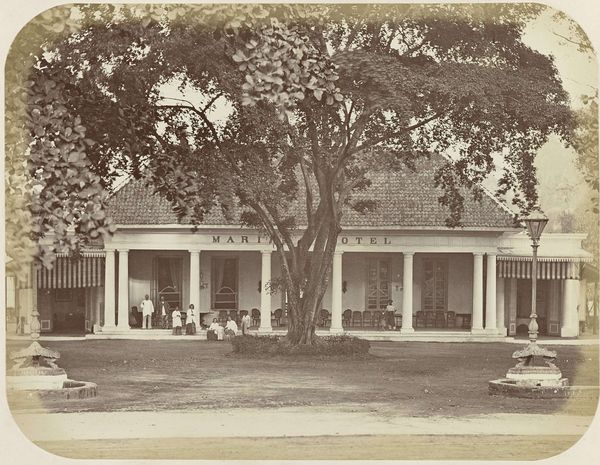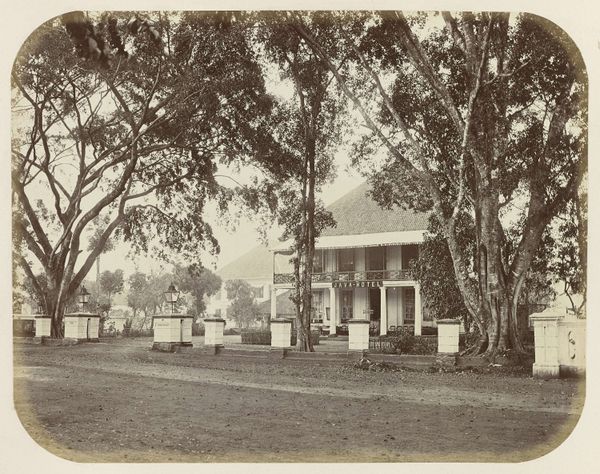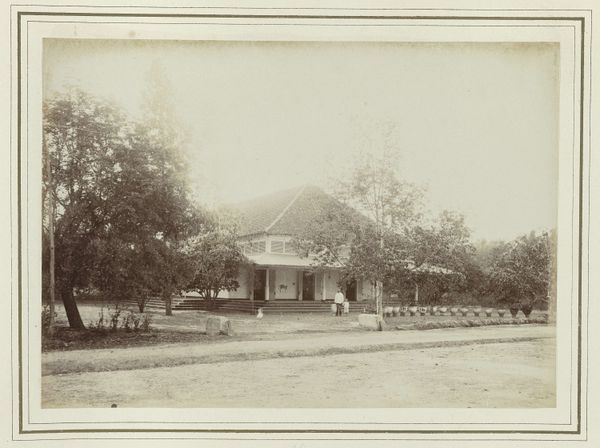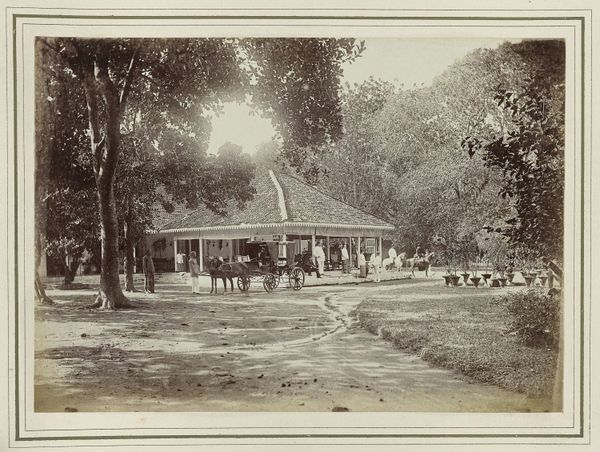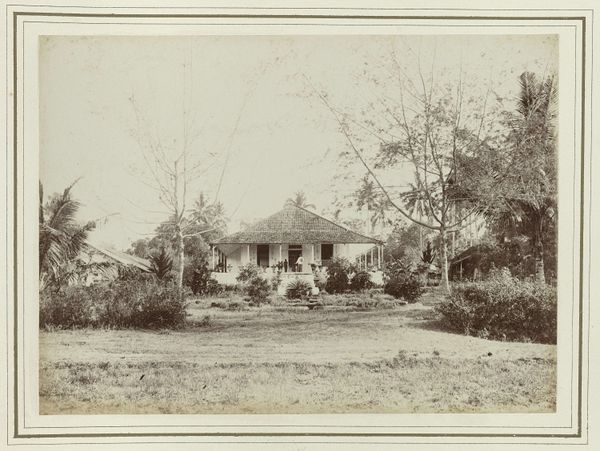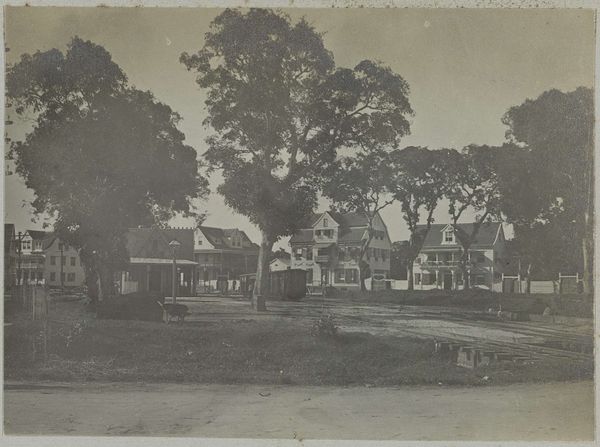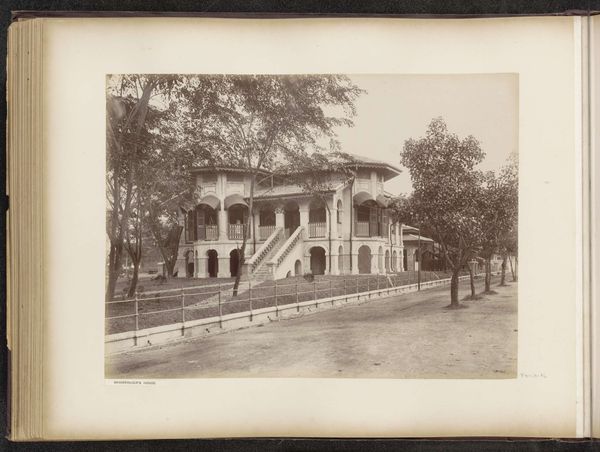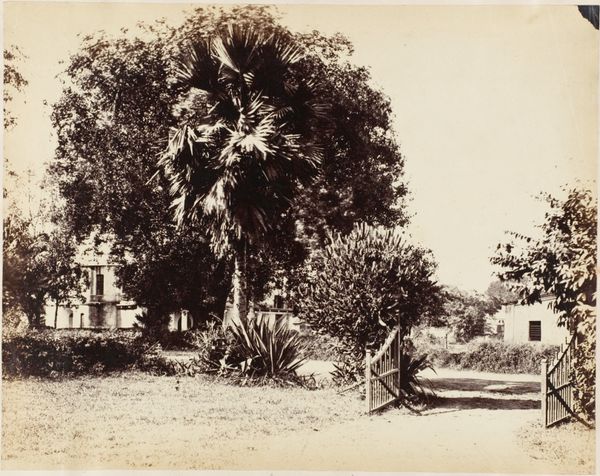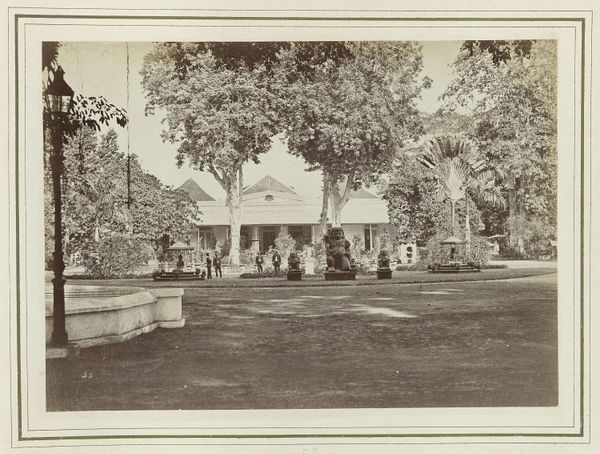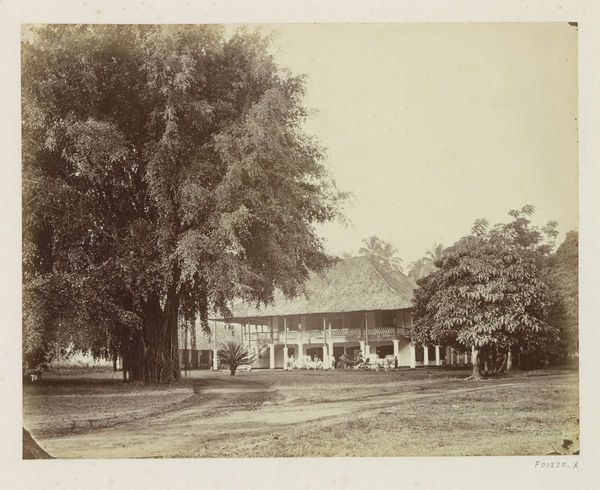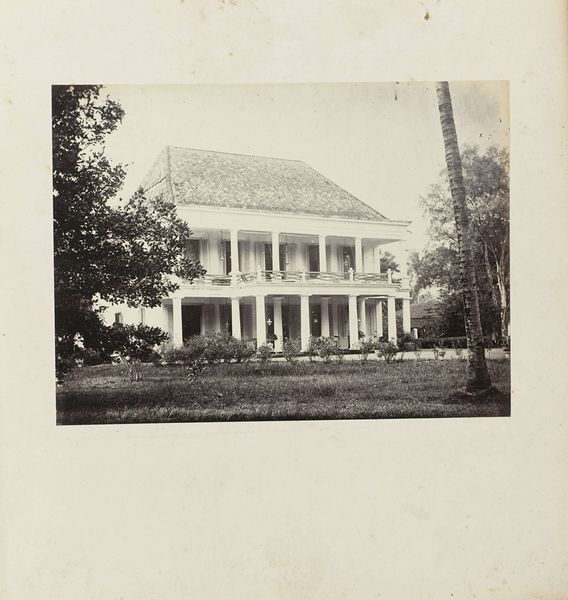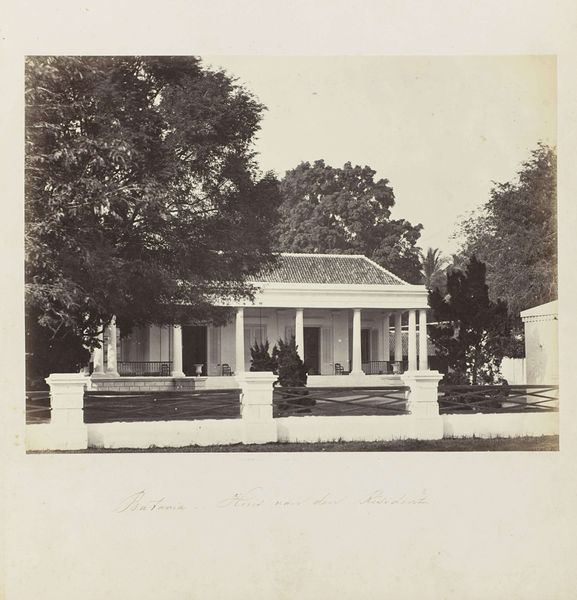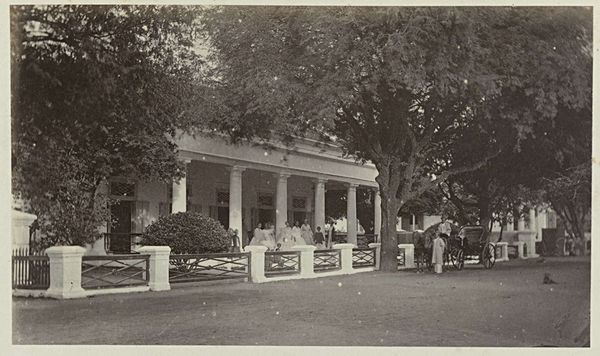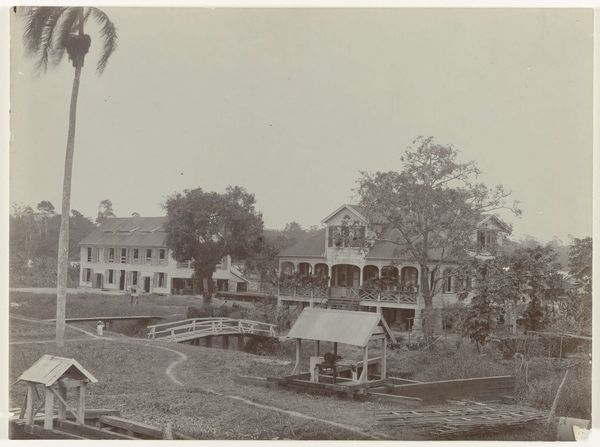
photography, albumen-print, architecture
#
16_19th-century
#
old engraving style
#
landscape
#
historic architecture
#
traditional architecture
#
photography
#
historical photography
#
hudson-river-school
#
19th century
#
albumen-print
#
architecture
Dimensions: height 187 mm, width 242 mm
Copyright: Rijks Museum: Open Domain
Woodbury & Page made this albumen print, "Huis aan de Molenvliet," which translates to "House on the Mill Creek," using a process that was cutting-edge at the time, but rooted in chemistry known for centuries. The albumen process, using egg whites to bind the photographic chemicals to the paper, allowed for finely detailed images to be printed, capturing the textures of the tropical foliage and the architectural details of the house with remarkable clarity. This print would have been made through a laborious process of coating paper, exposing it to a negative under sunlight, and then carefully washing and toning the print. The very act of documenting this house speaks volumes. Photography in this era was not just about capturing an image, but about possessing a piece of a place. Woodbury and Page were commercial photographers, after all, and their work catered to a market eager to consume images of exotic locales and symbols of colonial success. Understanding the materials and the making of this photograph helps us see it not just as a pretty picture, but as a material artifact deeply embedded in the social and economic context of its time.
Comments
No comments
Be the first to comment and join the conversation on the ultimate creative platform.
